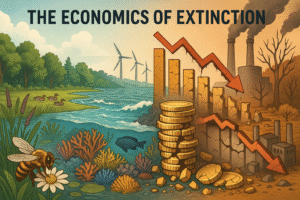In the pantheon of economic thought, few figures stand as tall and controversial as Milton Friedman. A Nobel laureate and fervent advocate of free-market capitalism, Friedman’s ideas have stirred passionate debates, leaving an indelible mark on economic policies and ideologies. As we delve into the intricate web of Friedman’s theories, it’s crucial to understand the nuances that make him both a revered champion and a contentious figure.
The Gospel of Free Markets: A Paradigm Shift
Milton Friedman’s influence on economic thought is perhaps best encapsulated in his seminal work, “Capitalism and Freedom.” Here, he fervently argued for the supremacy of free markets as the bedrock of a prosperous society. His staunch opposition to government intervention in the economy became a clarion call for those seeking to liberate markets from bureaucratic constraints.
Friedman’s conviction in the efficiency of free markets, however, has faced robust criticism. Detractors argue that unabated capitalism can exacerbate income inequality, leaving the most vulnerable members of society marginalized. The clash between the proponents of “laissez-faire” economics and those advocating for a more compassionate government intervention has created a perpetual battleground in economic discourse.
The Shock of the Peculiar: Monetarism and the Quantity Theory of Money
Beyond his advocacy for free markets, Friedman’s influence extended into the intricate realm of monetary policy. A champion of monetarism, he posited that fluctuations in the money supply directly impact economic performance. The Quantity Theory of Money, a cornerstone of Friedman’s monetary philosophy, argues that changes in the money supply lead to proportional changes in prices.
While the simplicity of this theory resonates with many, it has faced challenges in the face of increasingly complex global financial systems. Critics argue that reducing the intricacies of monetary policy to a straightforward equation oversimplifies the challenges central banks face in managing modern economies.
The Road Less Traveled: Unconventional Policy Prescriptions
Friedman’s propensity for unconventional policy prescriptions has added an extra layer of controversy to his legacy. He famously suggested the elimination of the minimum wage, arguing that it distorts labor markets and contributes to unemployment. This stance, provocative in its nature, has ignited heated debates about the ethical implications of such proposals and their potential impact on vulnerable workers.
In times of economic crisis, Friedman proposed unconventional measures such as “helicopter drops” of money—essentially, injecting cash directly into the economy. While these ideas may seem radical, they underscore Friedman’s commitment to exploring alternative solutions, even if they challenge conventional wisdom.
Controversy in the Classroom: Friedman’s Impact on Education
Milton Friedman’s influence extends far beyond the pages of academic journals; it has permeated the educational landscape. The Chicago School of Economics, an institution closely associated with Friedman, produced a new generation of economists who embraced his ideas as intellectual weapons. However, this academic influence has not been without its critics.
Detractors argue that the Chicago School’s emphasis on free-market principles fosters a narrow worldview, ignoring the multifaceted nature of societal challenges. The clash between those advocating for a more comprehensive economic curriculum and proponents of the Friedman-inspired approach continues to shape the education of future economists.
Conclusion
Milton Friedman’s legacy is a paradox—a beacon of economic liberty for some, a symbol of unfettered capitalism for others. As we navigate the turbulent waters of economic discourse, it’s essential to grapple with the complexities that define Friedman’s contributions.
Love him or loathe him, there’s no denying that his ideas continue to shape our understanding of markets and governments, beckoning us to question and reevaluate the very foundations of our economic systems. In the ongoing saga of economic thought, Milton Friedman remains a polarizing figure, challenging us to confront the inherent tensions between individual freedom and societal welfare.





Comments
Thanks for sharing. I read many of your blog posts, cool, your blog is very good.
I don’t think the title of your article matches the content lol. Just kidding, mainly because I had some doubts after reading the article.
I don’t think the title of your article matches the content lol. Just kidding, mainly because I had some doubts after reading the article.